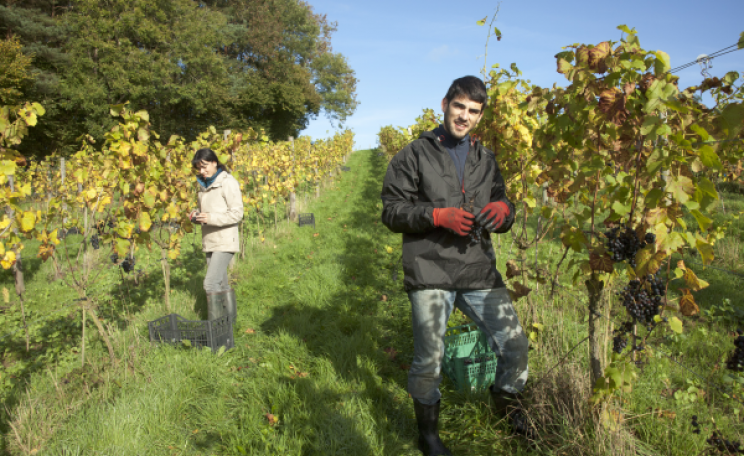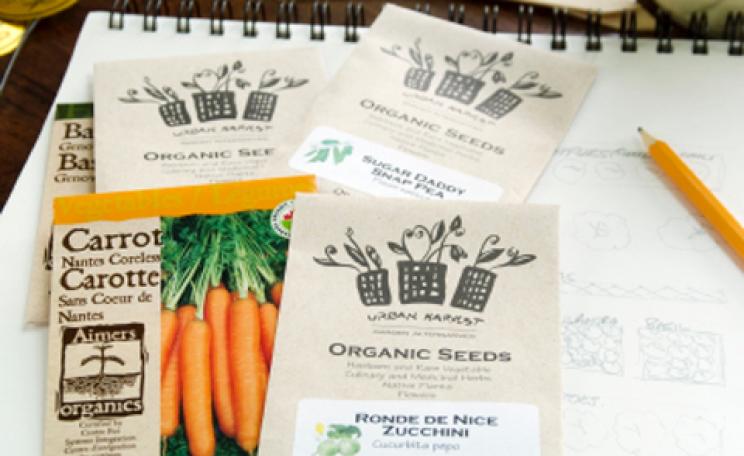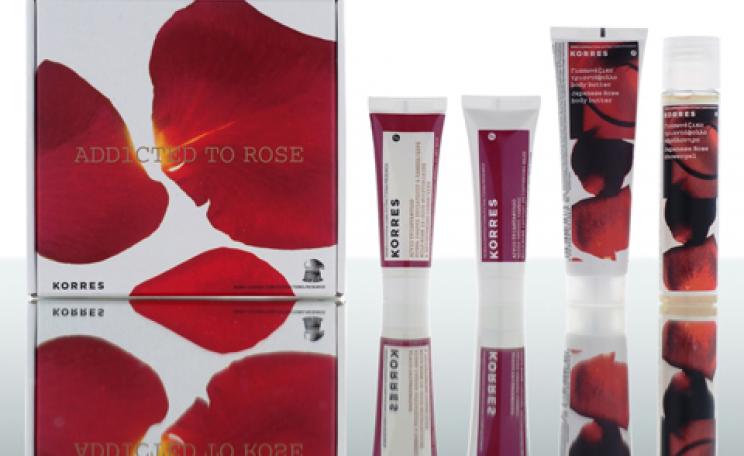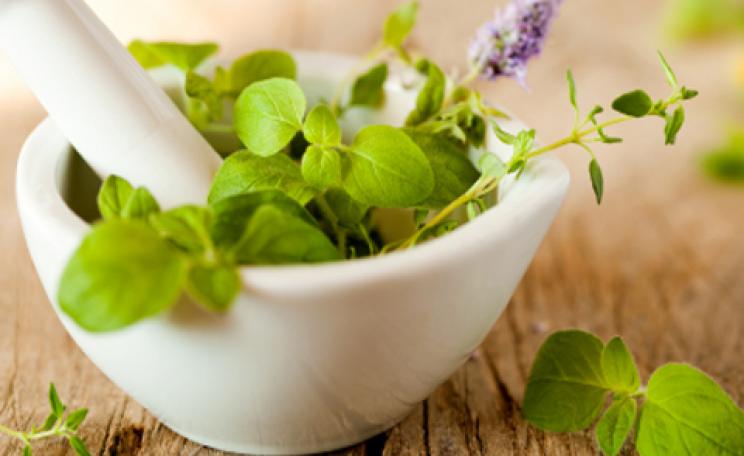‘We have over 250 eco-labels and over 50 product stewardship bodies’ for food according to Professor Alan Knight from the University of Cambridge. But alcoholic drinks are not subjected to the same scrutiny. According to Vinexpo and International Wine and Spirits Research (IWSR), the UK is the world’s largest importer of wine, with our total consumption of all alcohol set to top 151.5 million cases by 2014, which would have an estimated value of £9 billion. With the greatest market share, the UK should be leading the way in product labelling and carbon reduction. Yet very little research has been conducted on the environmental impact of wine.
Additives
The only additives currently mentioned on wine labels are sulphates (SO2). Adding small amounts can protect wine during transit, prolonging shelf life and preventing spoilage. In high quantities they can be damaging to your health causing headaches and asthma like symptoms. In Europe, producers do not have to list the sulphate content on labels, although it is compulsory in the US. SO2 occurs naturally in grapes in low volumes but synthetic varieties, many of which are derived from petrochemicals, are now used. But sulphates aren’t the only type of additive found in wine. Ambient or wild yeasts, also naturally found in grapes, were traditionally used to aid the fermentation process, but the use of so many chemical sprays over the years has weakened indigenous yeasts. Unable to ferment naturally, lab-created industrial yeasts are now used in most wines, according to wine blogger, That Crazy French Woman. In the final stages of wine making, egg (ovalbumin), gelatine or fish bladders (isinglass) are usually added to wine in to act as fining agents, removing any suspended particles in the wine. Removed from the final product, trace elements often remain. Many are still unaware that most wines aren’t suitable for vegetarians and vegans.
 Sustainability
Sustainability
Wine is defined as an alcoholic drink made from fermented grape juice. Today, in order to keep up with demand, synthetic chemicals such as pesticides and herbicides are added. These chemicals can leach into the soil, stripping it of life and nutrients. Excessive use often causes runoff and pollution and leads to loss of topsoil. Continued use, not using cover crops or rotational methods, renders the soil infertile. Wine making is now an industrial process. Mechanical tillage and inappropriate irrigation are becoming more common and erosion more frequent. According to the European Union, between 2000 and 2001, 11000 euros per hectare were splashed out on ‘erosion control measures in vineyards’ with the total valued at €143 million. Globally, the carbon footprint of wine amounts to more 5,336,600 tonnes according to The Association of Wine Economists (AWE). Land conversion and shipping distances are major contributors to global CO2 emissions for the wine industry. Mechanisation and misuse of agrochemicals and water also play their part, while the use of oak barrels contributes to deforestation and the energy efficiency of wineries are indirect contributors according to AWE.
In the UK, we buy in around 1.2 billion bottles a year, generating huge CO2 emissions during transportation and contributing more than 630, 000 tonnes of glass to the UK waste stream, around 40 per cent of which is disposed of as household waste according to The Waste and Resources Action Programme (WRAP). WRAP’s GlassRite Wine project has encouraged ‘lightweighting’ of wine bottles, and the promotion of green rather than clear glass as it cuts packaging related CO2 emissions by 20 per cent. Bulk importing of wine - transporting wine in vats for bottling in the UK - is also encouraged for larger suppliers of wine as it results in a dramatic reduction in emissions and transport costs. Sainsbury’s has undertaken lightweighting on over 250 individual products lines saving 490 tonnes of glass annually – the equivalent of a CO2 emission reduction of 382 tonnes. As a result of the GlassRite Wine project, 199 million 75cl glass bottles of bulk imported wine are sold each year in the UK and the use of recycled glass has increased by nearly 24,000 tonnes per year, saving more than 20,000 tonnes of CO2 – equivalent to taking over 6,000 cars off the road.
 Ethical options?
Ethical options?
Grown in accordance with organic farming principles, organic wine excludes the use of artificial agrochemicals. Farming practices must meet organic standards but once it reaches the winemaker, chemical additives may be added. There are currently more than 50 additives still allowed by law in the EU and many of these are still used in the making of organic wine. The Soil Association is the main governing body of organic certification for food. Wine, however has dozens of certifying bodies each with varying regulations. Most independent winemakers scrutinise their practices to ensure that from grape to glass the process remains organic with larger vineyards, the ones that supply supermarkets, often failing to uphold any such standards. ‘We should be concerned about wine if we care about the taste and chemical content,’ says Neil Palmer, director of Vintage Roots, an online organic wine merchant. It’s hard to quantify the ecological footprint of wine but in general organic is better for the environment.
Demeter (Biodynamic Association) recognise a biodynamic farm ‘as a strong, self-sustaining and vibrant single organism that recognises and respects the basic principles at work in nature.’ There are no monocultures in nature. As such, biodynamic techniques aim to encourage biodiversity and protect wildlife. Using natural pest controls and horn-manure to enrich the soil, biodynamic viticulture tries to create as little impact as possible. Horse power instead of mechanised tractor is used to plough the soil resulting in up to 25 per cent more carbon sequestration than in conventional farming methods. There is a sense of purity to biodynamic wines that makes their appeal all the more alluring. But their otherworldly principles often leave some perplexed as to how beneficial their approach is. With a belief that compost preparations transfer supernatural terrestrial and cosmic forces into the soil you would be forgiven for thinking you had entered the twilight zone.
‘If biodynamic and organic growers can produce a wine of comparable quality to that produced with all the chemical fertilisers, weedkillers and chemical disease control sprays, then we have proved that you don't need all those nasties to make a good wine’ says vintner Roy Cook of Sedlescombe Organic Vineyard. ‘There has got to be a feel good factor because your enjoyment is not costing the Earth, rather it is helping the environmental alternative.’ In the UK there are around 400 vineyards but only four are certified organic and just one is biodynamic. The quest for quality and pursuit of purity is growing. Labelling is improving but year on year the constituents that make up wine will vary. Quality assurance guaranteed by food will never filter through to the same extent for wine but by supporting local wine merchants and small vineyards, you are more likely to receive a wine that is unadulterated. ‘Try and choose wine that doesn’t have many ‘wine miles’ to keep the carbon footprint low,’ suggests Roy. ‘Look for certified bottles,’ adds Neil. ‘Your wine merchant should be able to tell you what wine is best.’
| READ MORE... | |
 |
GREEN LIVING How to make your own booze With no food miles, no additives and no duty involved, making your own alcohol saves both money and the planet. Hannah Corr explains how to get started |
 |
GREEN LIVING Five of the best…foodie gifts to make at home Eco-friendly, delicious and ultra personal: Laurie Tuffrey explains why homemade treats trump Tesco’s and how to make them |
 |
GREEN LIVING Top 10…Christmas markets Whether you're after an locally reared turkey or a handmade ethical gift, a festive fair is where you'll find them. The Ecologist has the lowdown on Europe's best Christmas markets |
 |
GREEN LIVING Snack on that! Are insects the future of food? With seven billion people to feed, agriculture is feeling the strain. So are creepie crawlies the solution? The Ecologist takes a closer look |
 |
GREEN LIVING Starved to death: are high protein diets killing the planet? From the Atkins to the Dukan, protein-based diets are big news in the celebrity world. But what effect is our love affair with meat, fish and cheese having on the environment? |








